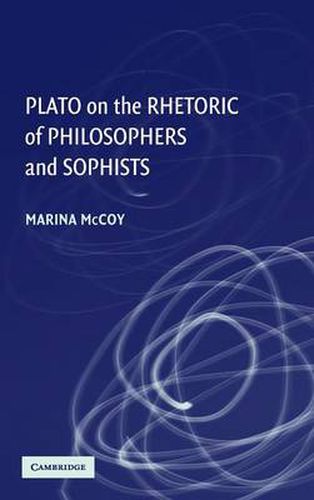Readings Newsletter
Become a Readings Member to make your shopping experience even easier.
Sign in or sign up for free!
You’re not far away from qualifying for FREE standard shipping within Australia
You’ve qualified for FREE standard shipping within Australia
The cart is loading…






Marina McCoy explores Plato’s treatment of the rhetoric of philosophers and sophists through a thematic treatment of six different Platonic dialogues, including Apology, Protagoras, Gorgias, Republic, Sophist, and Phaedras. She argues that Plato presents the philosopher and the sophist as difficult to distinguish, insofar as both use rhetoric as part of their arguments. Plato does not present philosophy as rhetoric-free, but rather shows that rhetoric is an integral part of philosophy. However, the philosopher and the sophist are distinguished by the philosopher’s love of the forms as the ultimate objects of desire. It is this love of the forms that informs the philosopher’s rhetoric, which he uses to lead his partner to better understand his deepest desires. McCoy’s work is of interest to philosophers, classicists, and communications specialists alike in its careful yet comprehensive treatment of philosophy, sophistry, and rhetoric as portrayed through the drama of the dialogues.
$9.00 standard shipping within Australia
FREE standard shipping within Australia for orders over $100.00
Express & International shipping calculated at checkout
Marina McCoy explores Plato’s treatment of the rhetoric of philosophers and sophists through a thematic treatment of six different Platonic dialogues, including Apology, Protagoras, Gorgias, Republic, Sophist, and Phaedras. She argues that Plato presents the philosopher and the sophist as difficult to distinguish, insofar as both use rhetoric as part of their arguments. Plato does not present philosophy as rhetoric-free, but rather shows that rhetoric is an integral part of philosophy. However, the philosopher and the sophist are distinguished by the philosopher’s love of the forms as the ultimate objects of desire. It is this love of the forms that informs the philosopher’s rhetoric, which he uses to lead his partner to better understand his deepest desires. McCoy’s work is of interest to philosophers, classicists, and communications specialists alike in its careful yet comprehensive treatment of philosophy, sophistry, and rhetoric as portrayed through the drama of the dialogues.